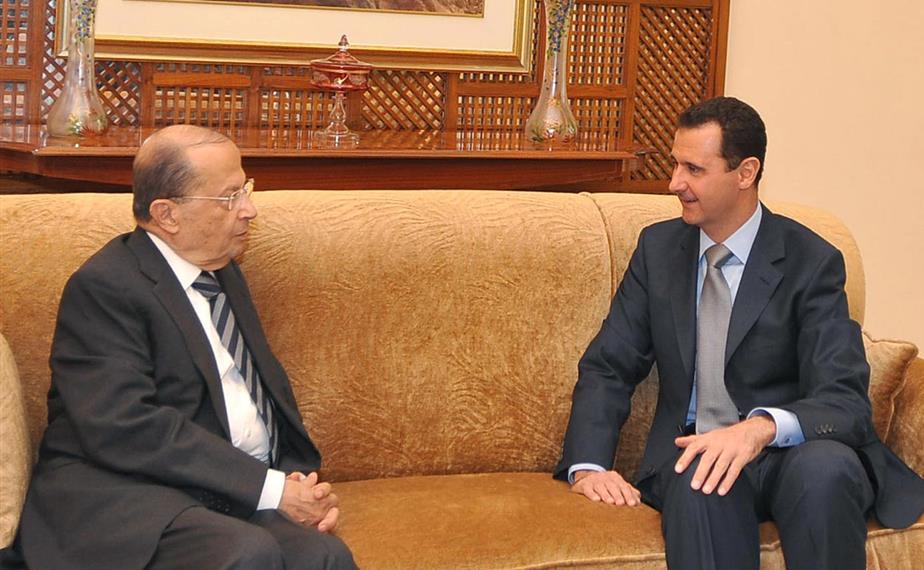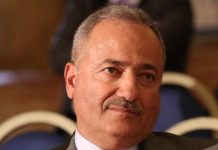عون جسر لمن؟
عبد الرحمن الراشد/الشرق الأوسط/29 تشرين الأول/16
ليس غريبا أن يكون الاختلاف في لبنان هو سيد الموقف غالبًا، فهو بلد الـ17 طائفة دينية المعترف بها رسميا. وتأثير هذا البلد الصغير أكبر من حجمه، مساحته نحو نصف مساحة دولة الكويت، ولعل هذه الصورة توضح سبب استمرار التنافس الإقليمي على ترابه ومؤسساته منذ استقلاله إبان الحرب العالمية الثانية.
وقد أضيف فصل جديد لتاريخه الصعب بوصول الجنرال ميشال عون إلى كرسي الرئاسة في أقدم جمهورية في العالم العربي، وهي كبقية دول المنطقة تحتفظ بشكليات الجمهورية، مثل الانتخابات والبرلمان وتداول السلطة، لكنها أقرب ما تكون إلى حكم النخبة. وحتى نفوذ النخبة السياسية التقليدية للطوائف تقلص، عندما كانت هناك توازنات. الوضع حاليا في لبنان يهيمن عليه بشكل كبير فريق واحد، «حزب الله»، وأخيرًا صار له ما أراد، بخضوع الأطراف المعارضة له بترئيس عون، بعدما كان يعتبر وصوله من المحرمات وسابع المستحيلات.
والكثير من اللبنانيين، وغيرهم، غير راضين على وصول عون للرئاسة سواء كان رفضًا لشخصه، أو اعتراضا على هيمنة «حزب الله» على القرار الرئاسي، الذي يفترض أنه خاص بالطائفة المسيحية المارونية، وفق اتفاق الطائف. لكن، ورغم الغضب والاستنكار، فإن السؤال هل يغير منصب الرئيس، بغض النظر من يسكن قصر بعبدا، في الواقع اليومي للدولة اللبنانية، أو علاقاتها الخارجية؟ هل هناك ما يستوجب الاعتراض وافتعال معركة أو الإبقاء على الفراغ الرئاسي والدستوري؟ منصب الرئيس محكوم بقيود كثيرة، وقد همشت الميليشيات والقوى السياسية المتحاربة الدولة ومناصبها الرئاسية الثلاثة.
وفي رأيي الشخصي أن الرئيس عون هو من سيحتاج إلى خصومه، أكثر مما هم محتاجون إليه. وهو من عليه أن يخشاهم بعد أن كانوا يخشونه عندما كان في المعارضة. لن يستطيع لوحده إيجاد الحلول والحفاظ على السلم الأهلي وتمضية أربع سنوات مريحة من دون أن يقرب المسافات البعيدة بينه وبين الآخرين.
لبنان مسرح كبير للعالم العربي، والمنطقة عموما، لعب دائما دور المضيف للقوى الإقليمية المختلفة، تصارع على أرضه الناصريون والملكيون، العروبيون والانعزاليون، السوريون والفلسطينيون، المسيحيون والمسلمون، السنة والشيعة، الإيرانيون والخليجيون، الخليجيون فيما بينهم. وهذا سبب دماره وسبب اهتمام الجميع به.
هناك الكثير من الأسئلة التي ستفرض نفسها، ومن خلالها يمكن استقراء الوضع القائم والمستقبل القريب حول وضع الطوائف، والعلاقات مع الأقطاب المتنافرة، في دمشق ومع إيران، والخليج، وفرنسا، وروسيا، وغيرها. هل سيرد الرئيس الفضل لـ«حزب الله» الذي أوصله للمنصب بتمكين الحزب من مؤسسة الرئاسة؟ وما الذي يمكن أن يفعله الرئيس عون في ظل تجاذبات محلية وإقليمية بلغت أسوأ مراحلها؟ القليل جدا. نحن نبالغ في دور الرئيس نتيجة للسلطات الهائلة التي يملكها الزعماء العرب الآخرون، في لبنان صلاحيات رئيس الجمهورية محدودة في ظل الدستور واتفاق الطائف المكمل له، وكذلك محدودة سلطات رئيس الحكومة.
من الأفضل أن نبدأ دائمًا متفائلين. فالرئيس عون يستطيع أن يطرح برنامج مصالحة يقرب بين الأطراف المختلفة، وينهي النزاع الذي كان طرفا فاعلا فيه، وسيكون أفضل رئيس عرفته الجمهورية منذ أيام الرئيس بشارة الخوري. وهذا فيه تفاؤل مفرط. وبإمكانه أن يكون أسوأ من الرئيس إميل لحود، فيزيد الفرقة ويشعل المزيد من الخلافات. إن أراد المصالحة فهو يستطيع تحقيقها، وإن أراد تعزيز وضع «حزب الله» فإنه سيصطدم بالواقع اللبناني القاسي، بالقوى المختلفة التي لن تتنازل له على حساب وجودها.
أصبح عون رئيسا للبنان وكل اللبنانيين، وفق أصول اللعبة «الديمقراطية» اللبنانية، وليس على الجميع إلا أن يعترف به، بغض النظر عن الآراء والتحفظات والخصومات، والتعامل معه وحثه على أن يكون جسرا للمصالحة.
Aoun, a Bridge for Whom?
Abdulrahman Al-Rashed/Al Sharq Al Awsat/October 29/16
It is not strange for Lebanon to have disagreements as it is the country of 17 state-acknowledged sects. The influence of this relatively small country is much larger than its size, given that its area is half of that of Kuwait, which explains the continuous regional competition on its territory and institutions since its declared independence after World War II.
Yet another chapter has been added to its difficult history, with General Michel Aoun getting closer to the presidency in the oldest republic of the Arab world. And like other states in the area, Lebanon maintains its formalities like elections, parliament and exchange of power. But ruling in Lebanon is closer to a power of the elite. Even the reign of the traditional political elite of sects has diminished when balances were formed.
Currently, the situation in Lebanon is dominated by one large party, Hezbollah, and it finally has what it has always wanted with the opposition succumbing to its will by getting Aoun to presidency after it was considered an unthinkable step.
Most Lebanese people, and others, are not satisfied with Aoun becoming a president either because of him personally or because of the domination of Hezbollah on the presidential decision. According to Taif agreement, choosing the president is limited to the Christian Maronite.
Yet, and despite all the anger and opposition, the question is: will the position of president change in the Lebanese reality and its foreign relations regardless of who resides in Baabda Palace? Is it worth objecting, or causing strife or even keeping the president’s position vacant?
The president is constrained to many limits where militias and warring political powers marginalized the state and its three presidencies.
I believe that President Aoun is the one who will need his opponents more than they need him. He is the one who should fear them after they feared him when he was in the opposition. Aoun alone won’t be able to find solutions, maintain civil peace, and rule for four comfortable years without reconciling disputes with others.
Lebanon is a grand arena for the Arab world and the region in general. It has always played the host of different regional powers.
Many fought on Lebanese soil including: Nasserites, Melkites, Arabs, Isolationists, Syrians, Palestinians, Christians, Muslims, Sunnis, Shiites, Iranians, people from the Gulf, and people from Gulf among themselves. This is the reason for its destruction and everyone’s interest in it.
Many questions will be raised through which we can predict the current situation and near future about sects and relations between opposing parties in Syria, Iran, Gulf, France, Russia, and others.
Will the president return the favor to Hezbollah for getting him to the position by enabling it to control the presidency? What can President Aoun do amid local and regional conflicts reaching their worst stages? He can do very little.
We exaggerate in our expectations from the role of the president because of all the power other Arab leaders have. In Lebanon, the capacities of the president and prime minister are limited as per the constitution and the Taif Agreement.
It is best we begin optimistic. President Aoun can suggest a reconciliation program that brings all parties closer and end the struggle that he was part of, thus becoming the best president the republic had since President Bechara el-Khoury. This is being overoptimistic. Or he could be worse than President Emile Lahoud by spurring more divisions and causing even more discord.
If Aoun wants reconciliation, he can achieve it. While if he wants to fortify Hezbollah’s position, he will be faced by the cruel Lebanese reality of the different parties that will not concede for him at the expense of their existence.
Aoun became a president for Lebanon and all Lebanese based on the “democratic” Lebanese way of doing things.
Everyone should deal with him and encourage him to be a bridge for reconciliation in spite of their opinions and reservations.





















